This post is also available in: Español (Spanish)
In the Chiapas Highlands, 68 Indigenous women gather in the Sat Kajpel Antsetik (Face of Women’s Coffee) Cooperative to plant and reap the organization’s promise with each coffee cherry cut from shrublike trees. Some succeeded in obtaining their own lands, while others cultivated the right to find their voice and foster independence, gradually or quickly, depending on their circumstances.
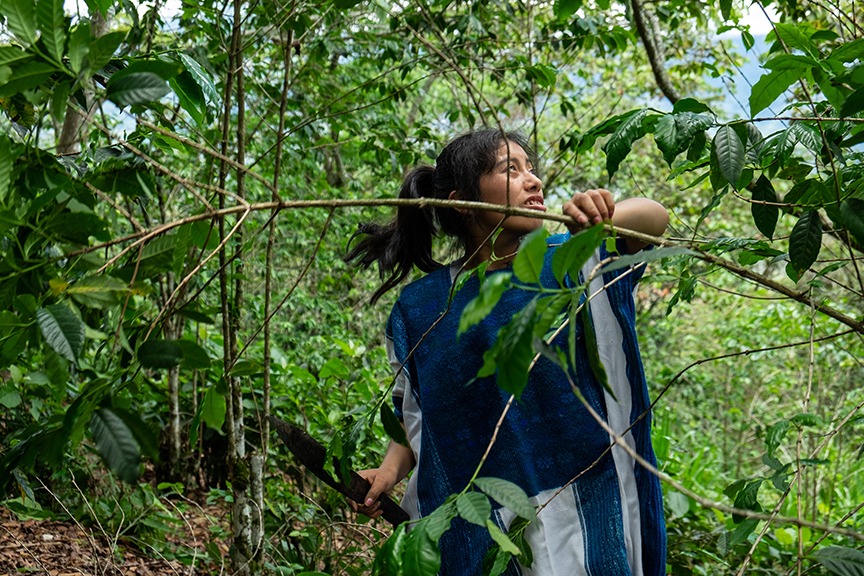
Owning Land
Before dying, her adoptive mother gave Verónica her land and warned her of what could happen: They might want to strip her of that inheritance, and she would have to defend it. “You must fight for the land. You must go and talk to the Communal Property Committee to explain things to them.” Verónica’s Aunt Lucía adopted her when she was just seven months old. She grew up next to Lucía, where she learned to remove, clean, plant and harvest coffee plantations in the Chiapas Highlands.
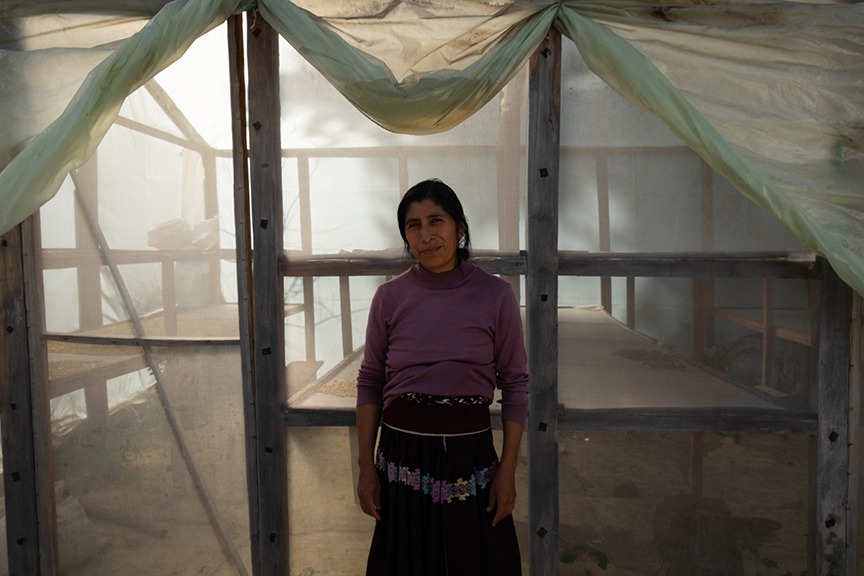
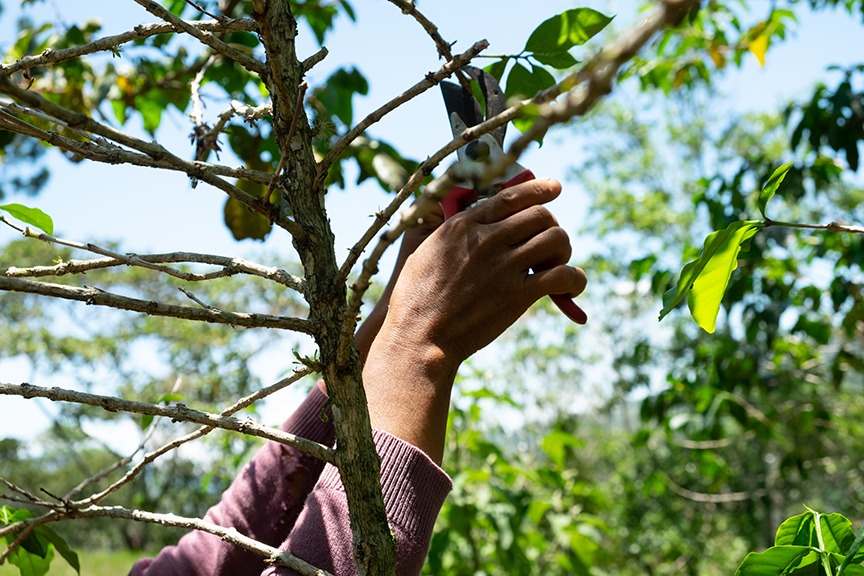
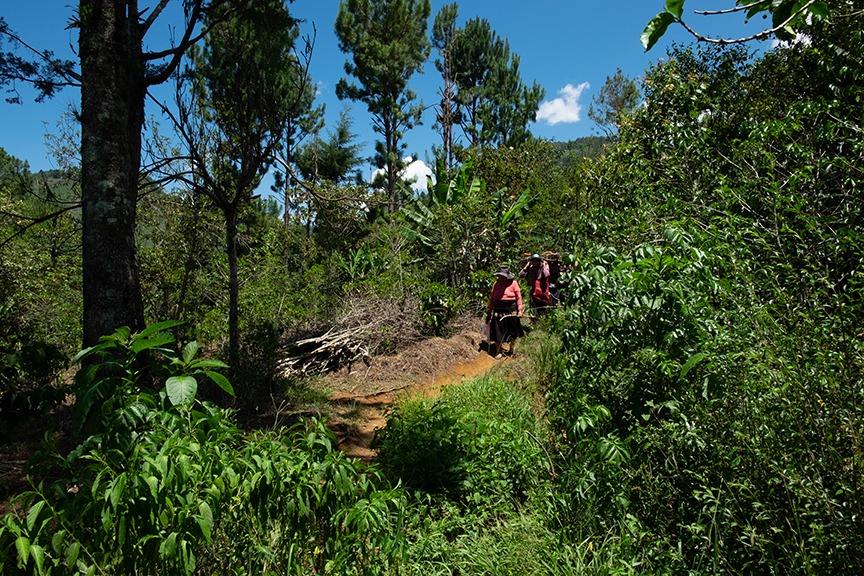
The fact that Verónica inherited the land is extraordinary if one considers that in Chiapas, only 27.7% of women hold title deeds to their land because historically, women did not have property rights. Earning the right to own the land you work was achieved during the Mexican Revolution; however, according to anthropologist Arturo Warman, the agrarian reform was born from “a machista or chauvinistic bias,” since only men had the right to claim agrarian endowments. It has taken more than 100 years to begin to reverse this pattern.
Verónica, now 47, never imagined that her older brother would be the one to feel entitled to take her land from her simply because he is a man. He had abandoned the community, its way of life and its responsibilities, thus losing his right to the land. “I was embarrassed to speak about my problem at the community members’ meeting because there were so many men, but I did.” Verónica took the six-hour trip from Tenejapa to the Chiapas capital several times to legalize her community rights until they were finally recognized 11 years and MXN 300,000 (16,000 USD) later. She obtained the title deed to her land and a debt that forced her husband to emigrate to the United States.
That left her in charge of raising her children and cultivating her land. This summer morning, she weeds the area where she grows her coffee. The harvest has passed, and it is time to prune the bushes to bring new growth. Until recently, she took her young children to the coffee plantations, skillfully moving between breastfeeding them and tilling the land. Her older daughters now babysit the kids at home.
It is not common for peasant women in Chiapas to gain ownership of their lands or get involved in cultivation and production improvement processes. Women are even less involved in managing the money received from selling the coffee beans. However, Verónica and other women achieved it by founding the Sat Kajpel Antsetik Cooperative in 2023 as part of the coffee women’s project managed and promoted by the Mercedes Olivera Feminist Collective (COFEMO). Those who did not own their land, like Verónica, negotiated with the men in the community to use and convert a wasteland into a coffee plantation. The first thing you need when you wish to plant the seed is somewhere to do it, and this is where the women’s struggle begins, in the soil bearing their feet.
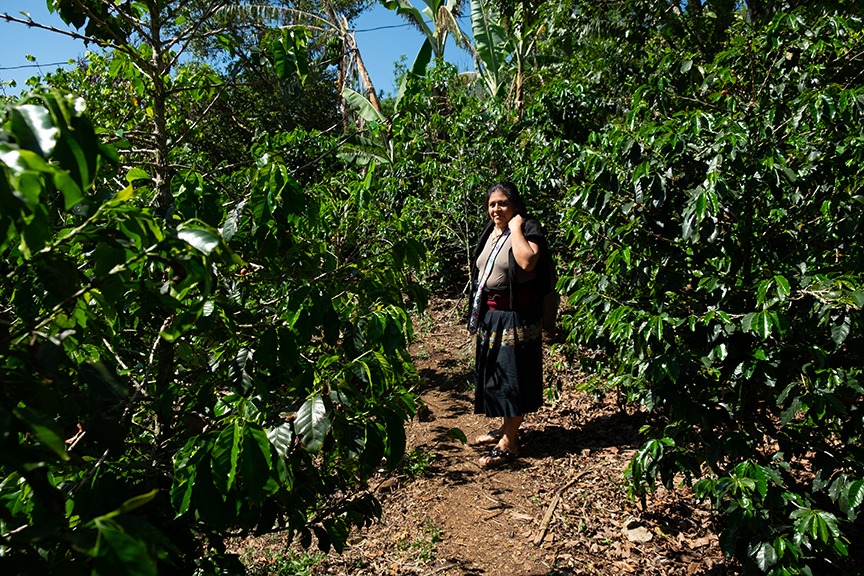
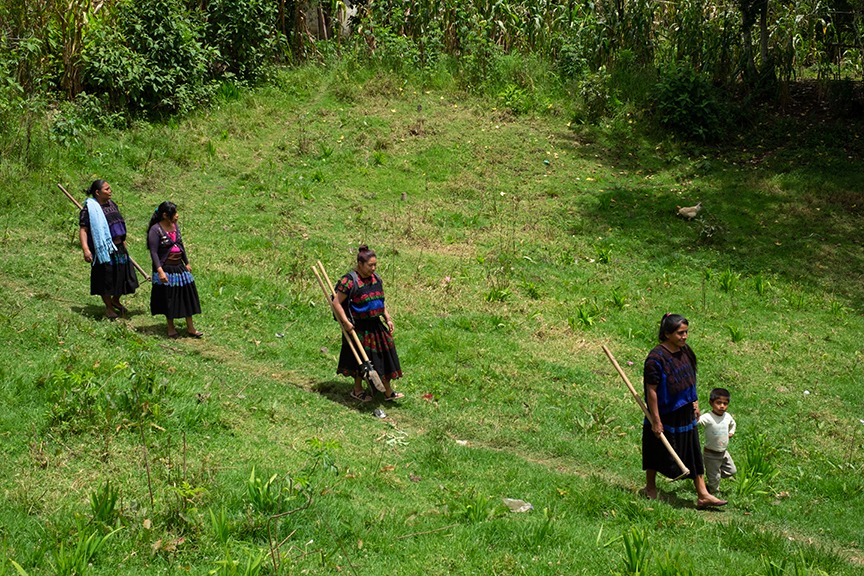
COFEMO is a feminist organization founded over 30 years ago that works to close gender gaps in Chiapas’ poorest and most unequal municipalities. It has partnered with other organizations to develop the “Initiatives with Women’s Work” project, which gave birth to Sat Kajpel Antsetik. It also runs a leadership school attended by women, like Verónica, from the Indigenous municipalities of San Juan Cancuc, Pantelhó, Santiago El Pinar, Mitontic, and Tenejapa.
For over 20 years, Chiapas has been Mexico’s main coffee producer. Farmers in the social sector have managed to produce high-quality beans, which allows them to sell their products to Europe, Japan and the United States. The Chiapas Coffee Institute estimates that more than 180,000 families work in cultivating coffee plants, and 61% of producers are Indigenous.
However, in Chiapas, as in many regions and nations across the globe, there is inequality in the division of labor, land ownership, and the distribution of the funds generated in the coffee production sector, and Indigenous women are at the lowest level. This is where COFEMO works to encourage women to get together to talk, learn about their rights, and share their dreams and how to make them come true.
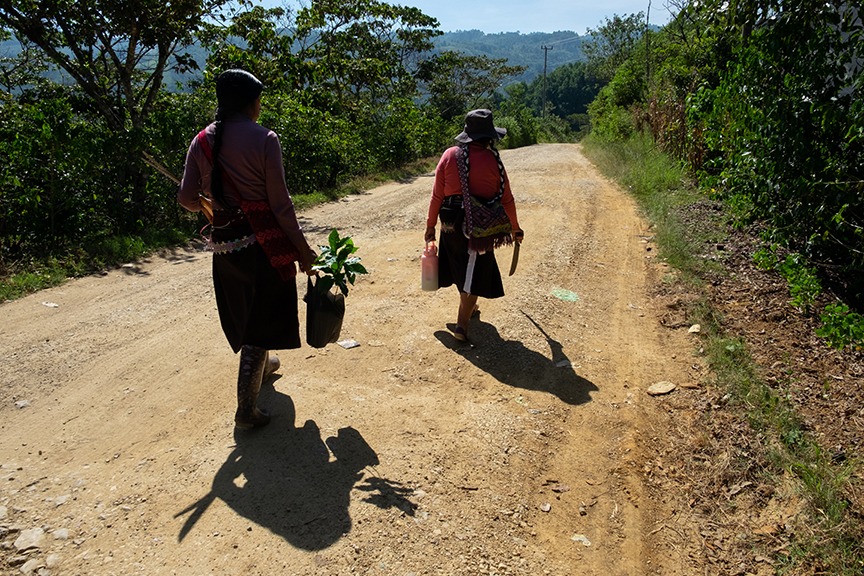
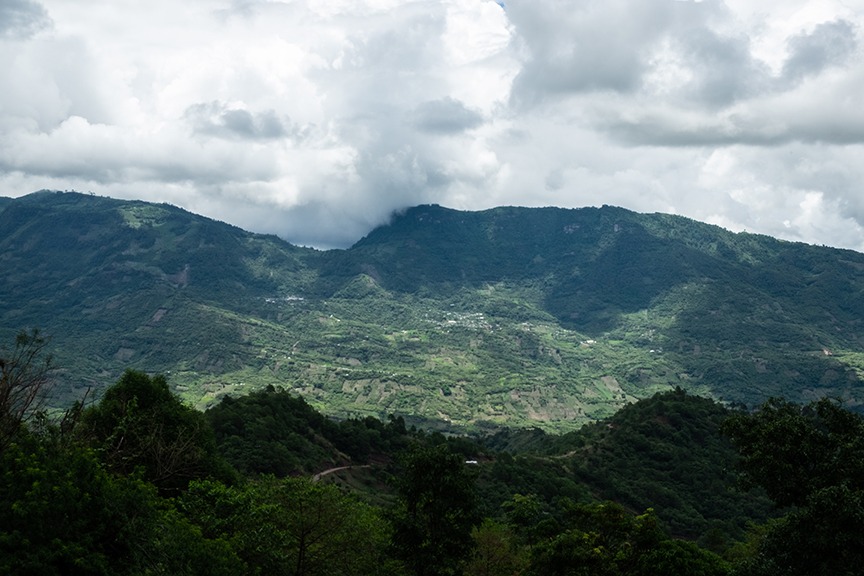
Verónica has spent several hours working in the coffee plantation; she does not rest. She wears a skirt that was spun on a backstrap loom, a pink sweater and plastic boots that make it easier to step in the mud caused by the rain. Her last task of the day is to gather firewood to build a fire and cook dinner. She collects the branches and some thin trunks that fall naturally from the shrubs, cuts them into same-size sections, and arranges them in a package weighing about 44 pounds. If the firewood were not cut to the same size, she could not balance it on her body to walk between the coffee shrubs and bushes. These efforts to ensure she can build a fire require about two hours.
Every day, Verónica lights the fire, washes the corn, cooks it, grinds it to make tortillas, cooks the beans, and brews the coffee. She walks to the field where she works for a while, collects firewood and returns home to rekindle the fire, heat the food, wash clothes and do a little housecleaning before bed. She believes that her hard work is well worth the effort. In this year’s harvest, she sold almost twice as much as the previous year: seven quintals (700 kg) of Bourbon-type coffee and two of Costa Rican-type coffee, with specialty export quality certifications. The coffee has a fruity and citrus flavor acquired from the lime, banana and other fruit trees planted on the lands, which transmit the flavor to the coffee trees, increasing their market price.
Verónica, thin and taller than the coffee plants, nurtures and renews to give them new life.
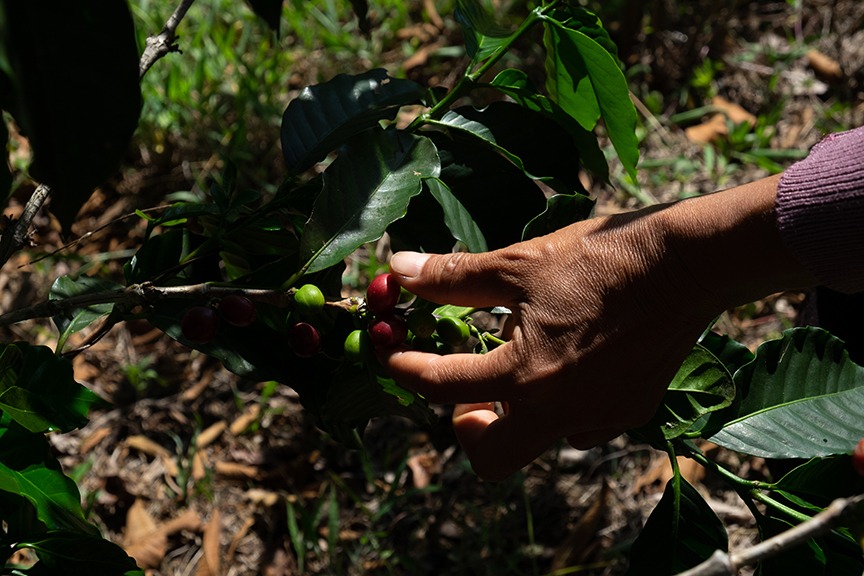
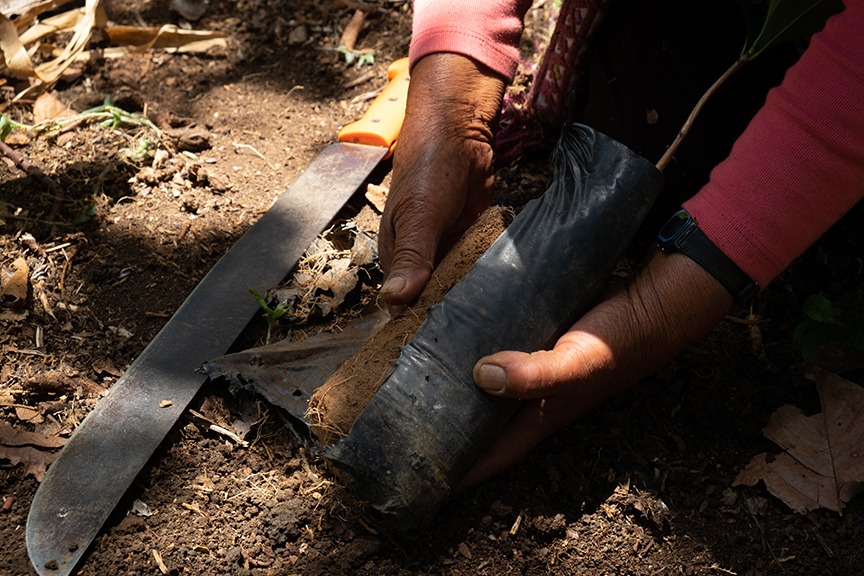
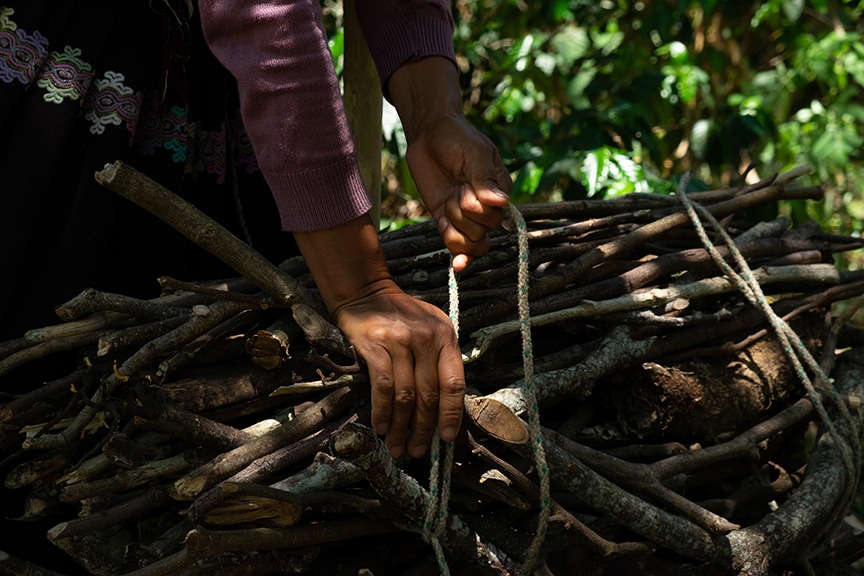
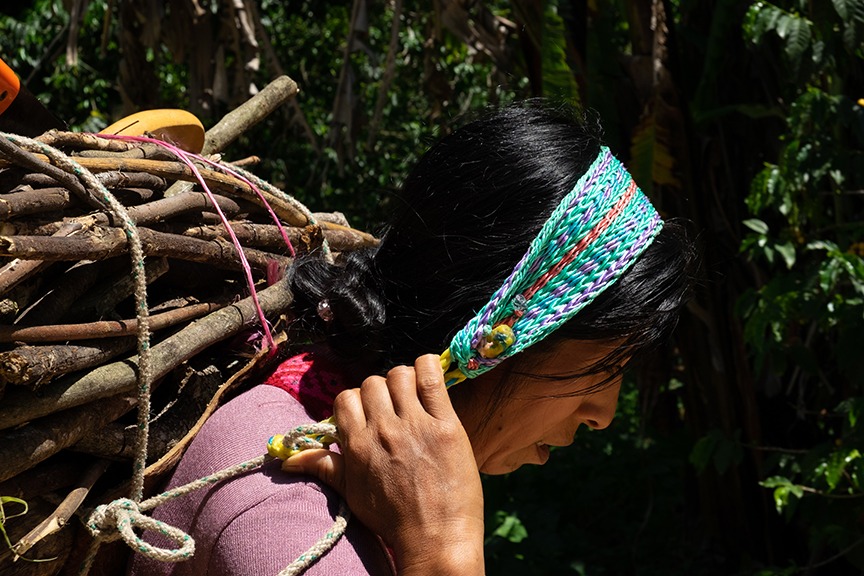
Verónica plants new shrubs, and at the end of the day, she collects firewood from the branches pruned from the shrubs to fire up her rustic stove to cook a meal for her children.
Keeping Your Word
Maribel Sántiz Aguilar lives in Chilol’Ja, 29 kilometers from where Verónica lives, in the San Juan Cancuc. She and four women in her family also belong to the Sat Kajpel Antsetik Cooperative.
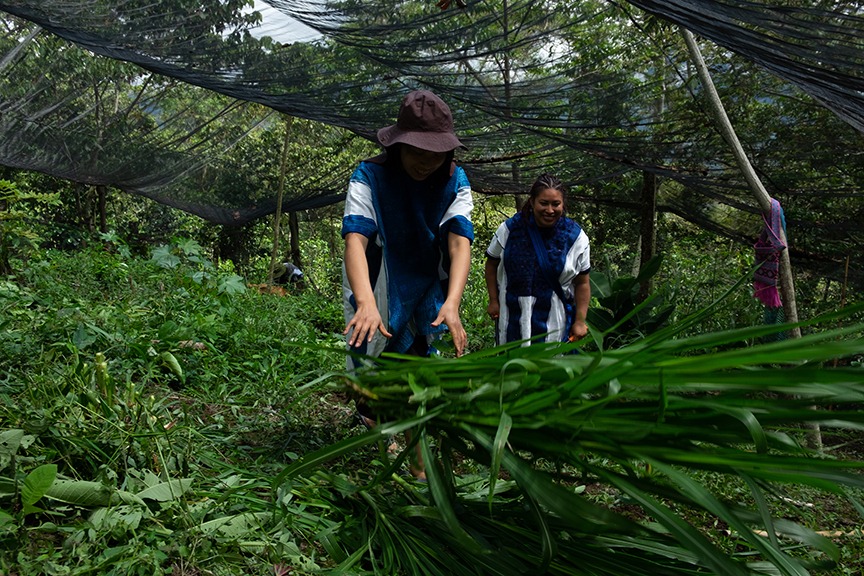
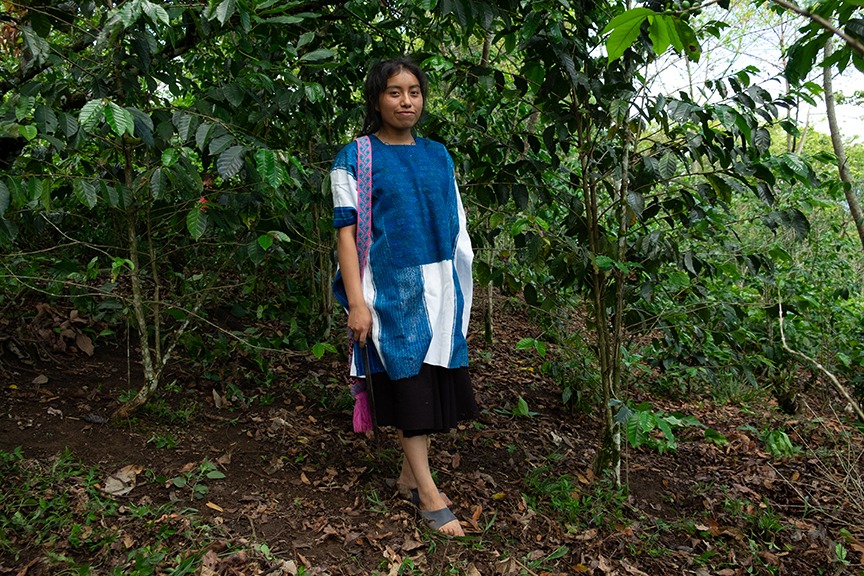
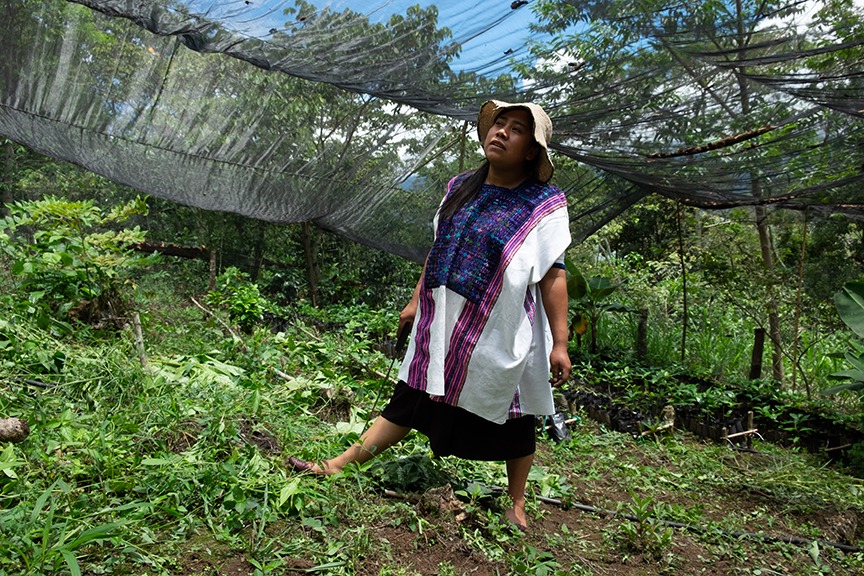
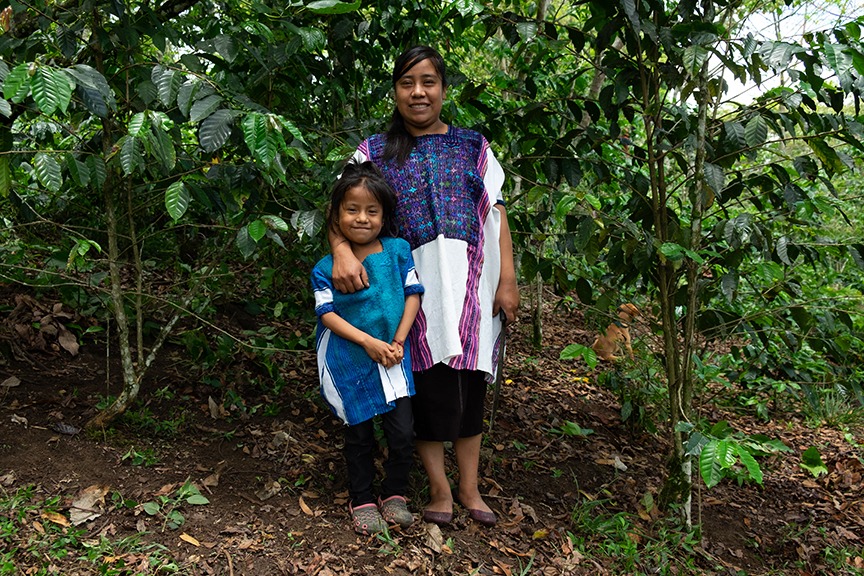
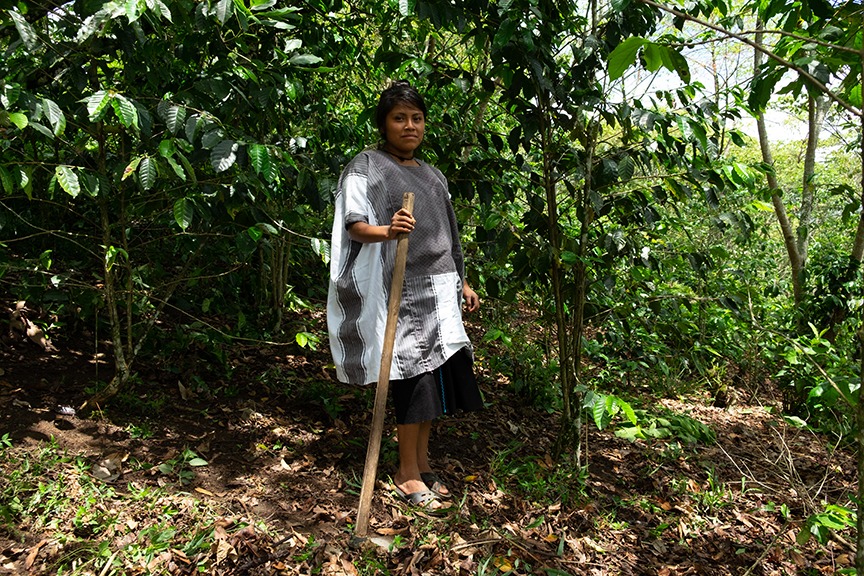
Maribel is 20 years old and has not married or had children like the rest of the women in her family and community. Instead, she grows coffee, plays soccer, and studies at the Intercultural University of Chiapas. When she was a teenager, she attended the COFEMO leadership school, where she met other women, some of whom were young like her and others who were a little older, like Liliana Pérez Díaz, who is 29, and her mother, María Díaz Velázquez, 65, who lives in the neighboring municipality of Mitontic.
“We talk about dreams, about changing women’s lives, to ensure men are aware of how we women work the triple shift, about how we’re going to pave the way for women (to) participate in meetings, allow them to attend and participate, because only the men make the agreements,” says Maribel.
Ana and Elena listen attentively as the three return from the nursery, where they are growing and caring for some coffee plants. They heat the tortillas and beans they made that morning with the heat of the rustic cooking stove. They also embroider garments in intense blue hues. Not everything is easy for Maribel’s family. One of her grandmothers pressures her to quit soccer, stop attending the coffee cooperative meetings, and questioning the men’s decisions.
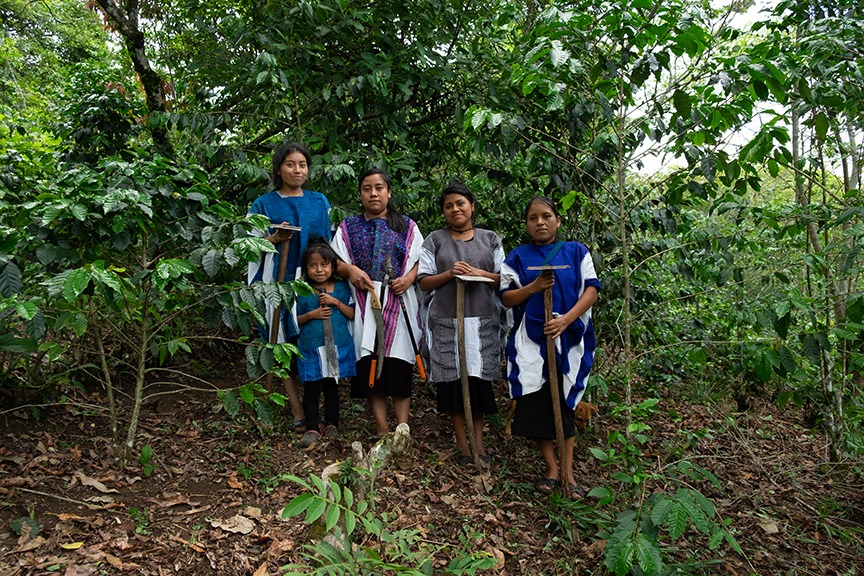
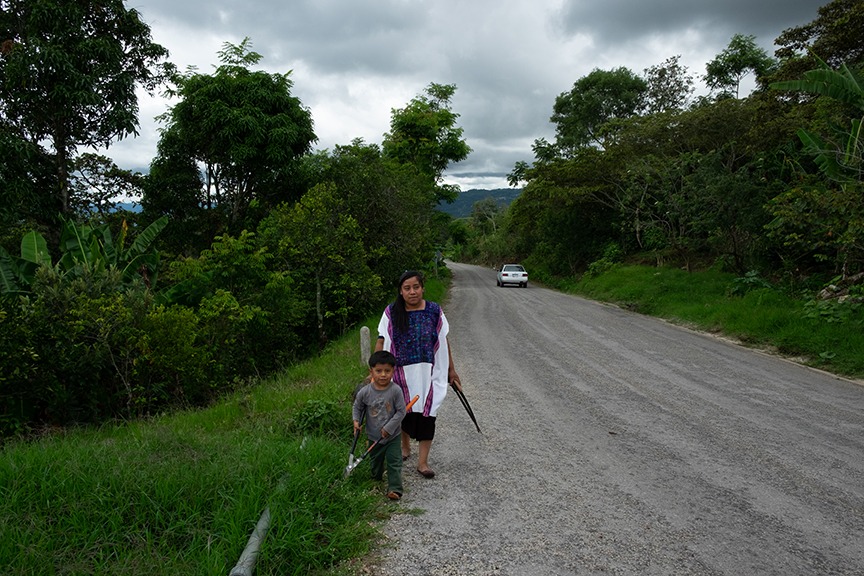
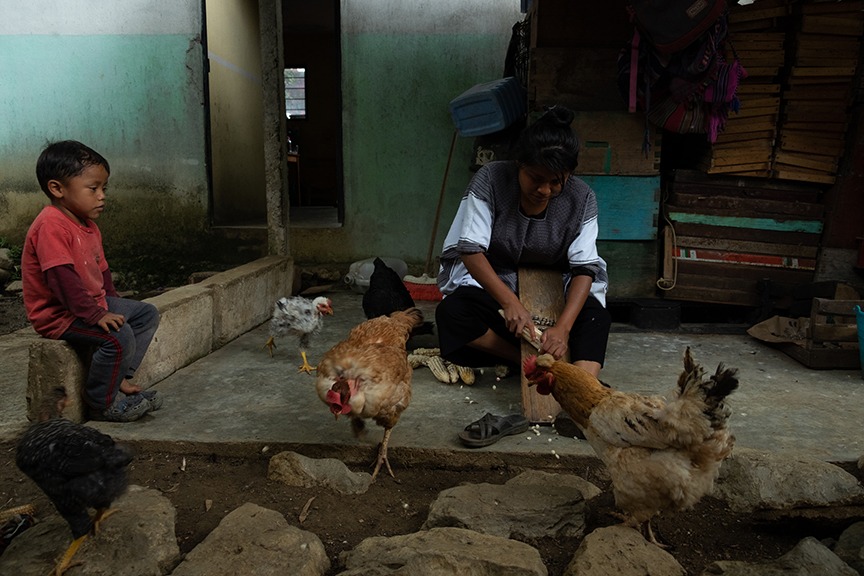
Things aren’t easy for the female coffee producers of the Santiago El Pinar municipality, either, who are among the 68 members of the Sat Kajpel Antsetik Cooperative. One of the main challenges they face is getting their husbands to give them permission to attend meetings in San Cristóbal de Las Casas. If they want to work the coffee plantations, they must first clean the house and take their children with them to the plantations, which are located on steep and slippery slopes.
In order to plant and harvest coffee, you must first dig holes in the steep terrain: you must open both physical and symbolic gaps. In fact, the entire family works in the fields, but decisions about the land and its fruits, in general, are made by the men. Breaking the rules, keeping your word, having the freedom to leave home to meet up with other women, training to learn how to improve the harvest, doing a better job selling the product, investing the earnings, and having your words and lessons learned heard and respected, is part of a path that is still being opened up in patriarchal contexts with sexist violence, which is made worse by alcohol consumption.
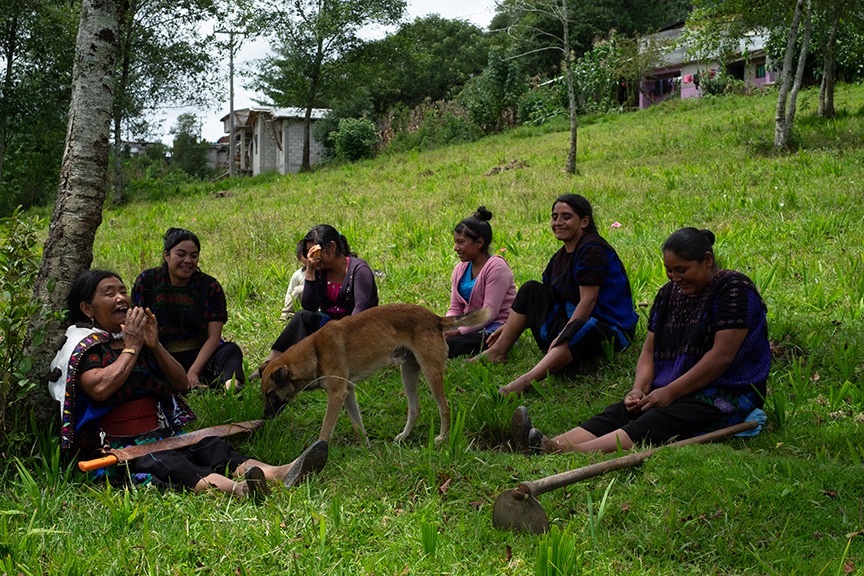
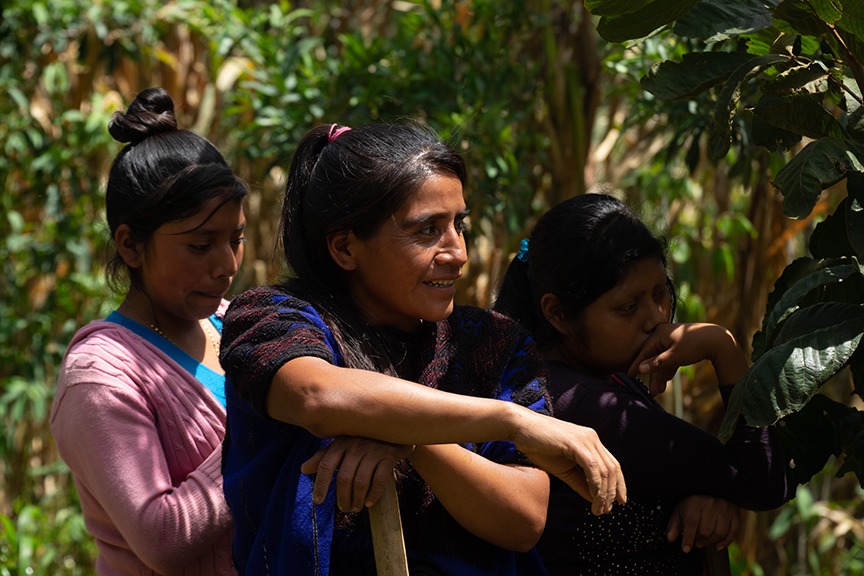
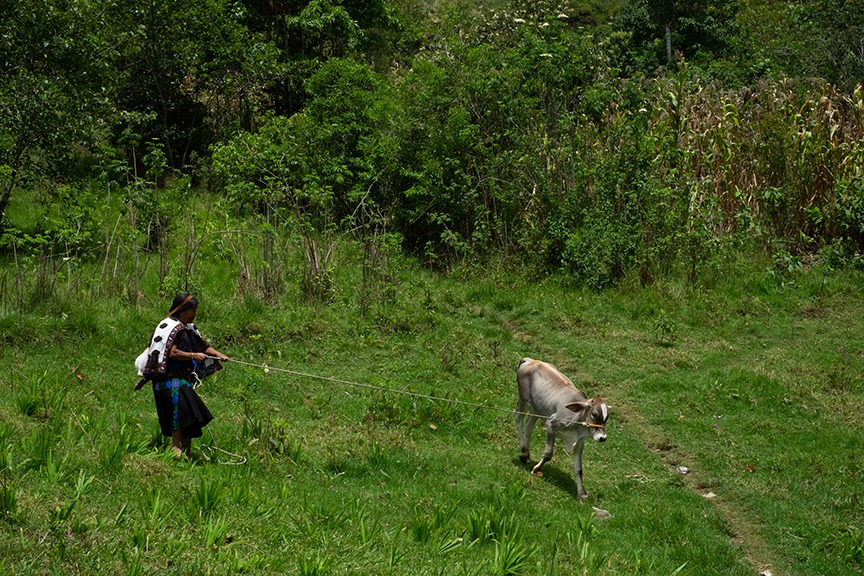
Having Dreams
The 68 women of the cooperative formed their Board of Directors a few months ago. They drafted their internal rules, signed their articles of incorporation before a notary public, opened a bank account and registered as coffee producers with the Tax Administration Service (SAT)—quite an achievement considering that some did not even have a birth certificate when they first began.
Angelina, Cristina, Magdalena, and Juana live in Santiago El Pinar. This is the first year they sold their harvest directly, not through a middleman. Joining the Sat Kajpel Antsetik Cooperative allowed them to improve production and sell their coffee with a 20% higher profit. They will use the money to buy work equipment and support their homes.
To ensure access to fair trade, the female coffee farmers worked with COFEMO to partner with two other organizations: Nuup, which means “connection” in Mayan, and El Buen Socio, which means The Good Partner in Spanish. Nuup was founded in 2015 as an incubator to accompany agriculture and commerce projects and initiatives. El Buen Socio provides ethical financial services to promote productive projects that produce a social or environmental impact. These two organizations “opened the door to commercialization,” explains COFEMO member Edith Díaz Gutiérrez, who is also the project’s operational coordinator working with the female coffee growers. “Nuup connected us with El Buen Socio. They gave us a loan to ensure that the women received a better price for their coffee than the amount they got from the coyote [middleman], and they hooked us up with those who took it to market,” she explained.
“When we reached this agreement, we did not have the bylaws of what is now the women’s official coffee cooperative, but they trusted that we were going to deliver high-quality coffee, and we can now say that we placed three tons in the market.” The challenge now, says Edith Díaz, is to create trading networks on our own, understand the market and become more independent.
Liliana sees the cooperative as an opportunity for growth for both herself and her community. “As a cooperative, we want to see our products sold in other countries. We want to be recognized in other states and municipalities and be seen for the work we do as women.” Lili walks barefoot on the freshly turned earth, cuts wildflowers and puts them in her long, black hair. She wants to discover, travel, “and do other projects for women. I want to learn many things for the women in my town so we don’t get stripped of our rights, so they can recognize the value of what we do working the land.”
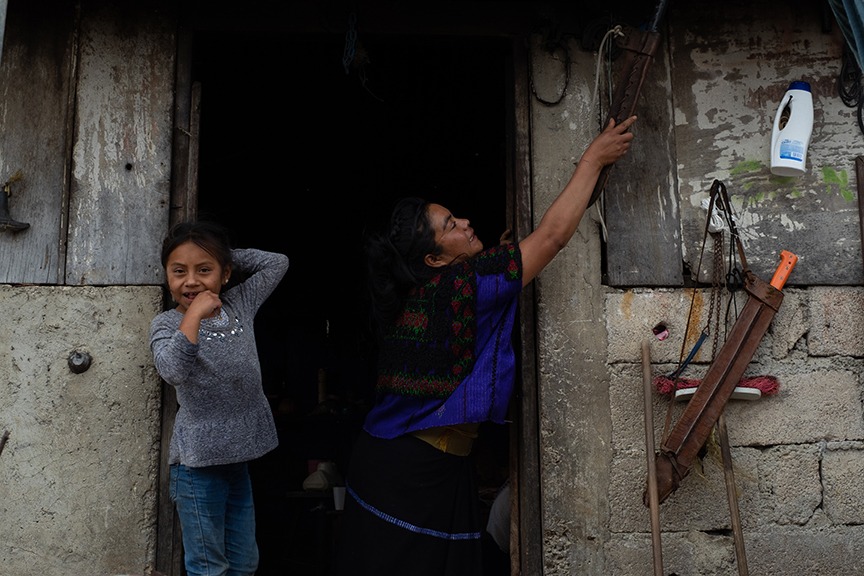
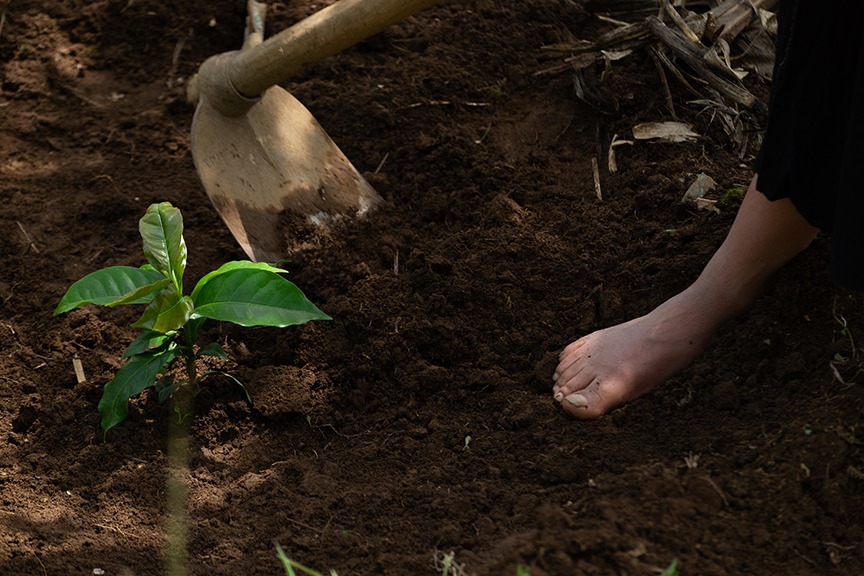
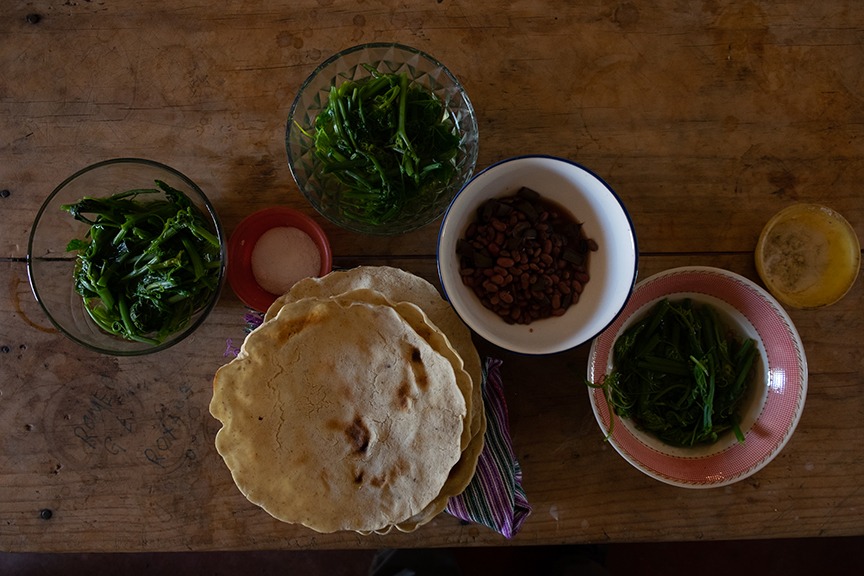
Ana Pérez López is part of the cooperative and is the mother of León, who is three years old, and Guadalupe, who is seven. Guadalupe accompanies her mother to the coffee plantation and deftly uses the hoe to weed the bushes. She wants to help her mother in the fields. On the other hand, her mother imagines her as an agricultural engineer who can help women improve coffee plantations.
Antonia Luna López lives in Tzajalchen, Tenejapa. She likes to grow flowers that brighten her view, keep chickens and grow coffee seedlings. She already has two types of beans. In 2012, an aggressive rust outbreak affected coffee plantations and forced producers to look for varieties resistant to this disease. Misfortune turned into strength, and Antonia’s patience allowed her to produce her own seedlings. Now, she no longer has to buy coffee bushes but sells the ones she and her family produce.
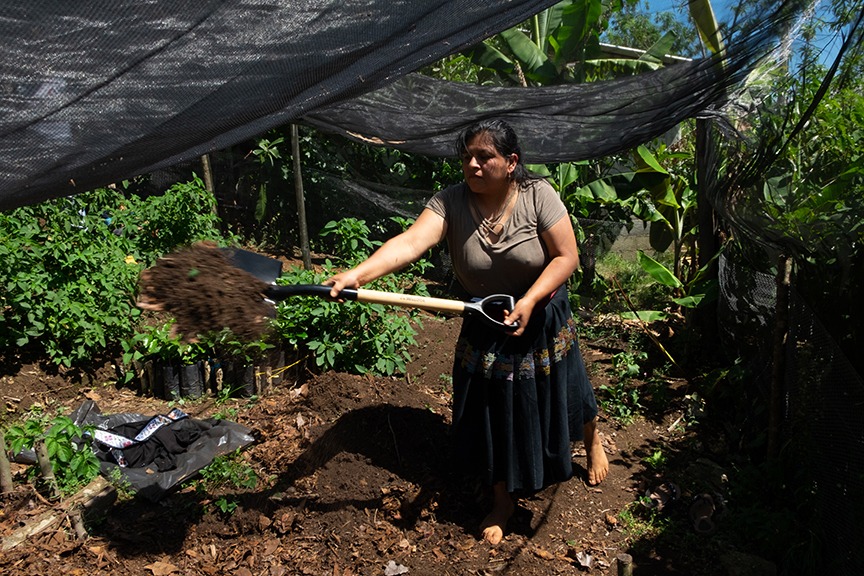
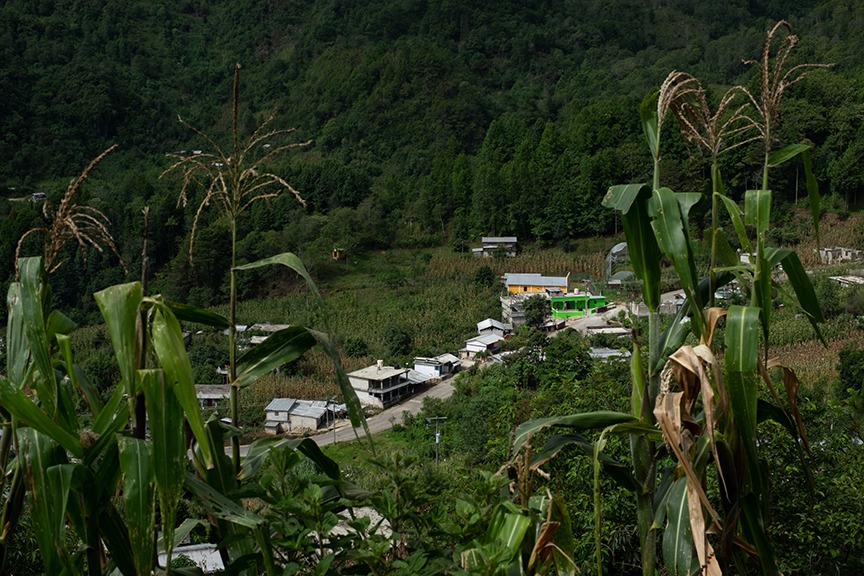
Those who cannot access a market that values quality coffee end up selling it to middlemen (coyotes), who go around the communities to hoard the beans they buy for a low price to resell them at a higher price.
The Sat Kajpel Antsetik women dream of strengthening their process and for everyone’s harvests to enter the specialty market. They dream of running a coffee shop in San Cristóbal de Las Casas, where they will also sell the garments they embroider. They want to keep their sons and daughters from migrating for lack of work. They want the men of their community to respect them. They want the freedom to organize.
To fulfill their dream, in addition to processes focused on organization and equality, they need to raise awareness among consumers to ensure they favor the products grown and sold by peasant women whenever they buy a bag or a cup of coffee. “We will continue working,” says Angelina, holding flowers in her hands. “We like to work in the coffee plantation and would like to gather; that is what we want: to stay together.”
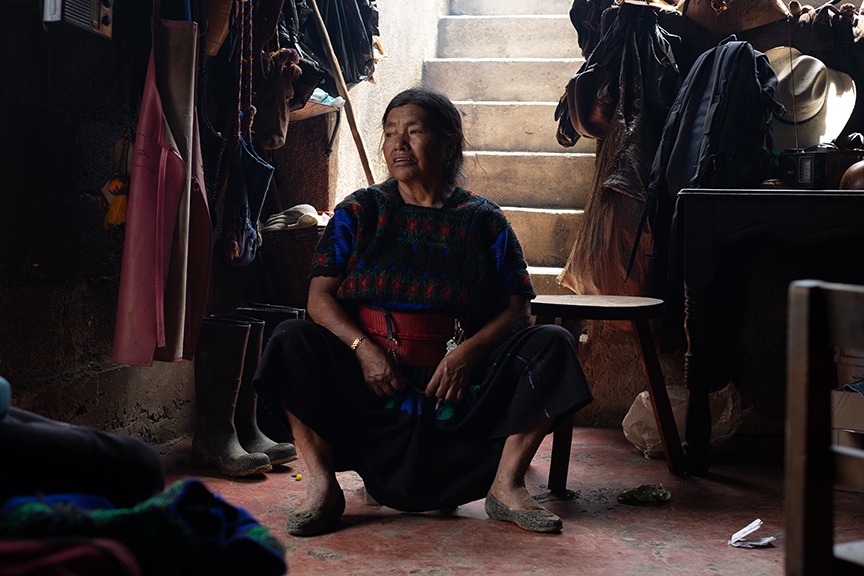
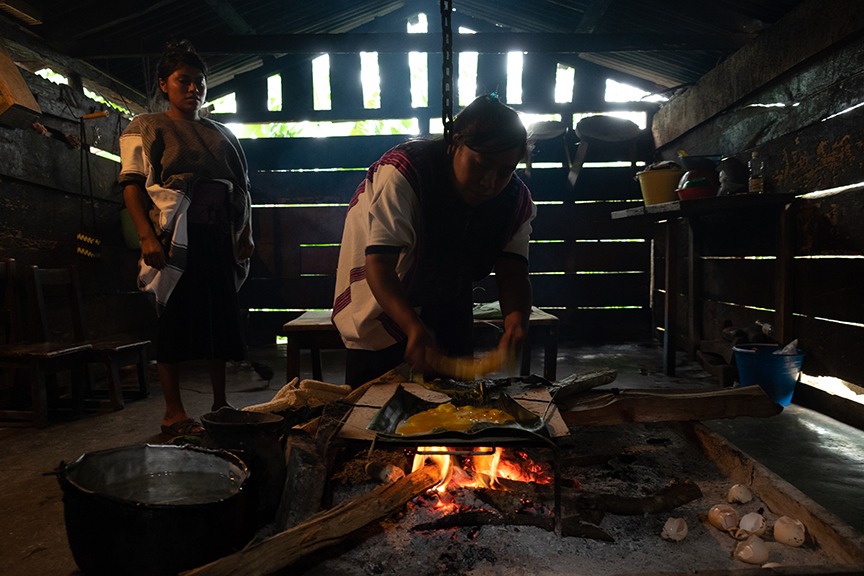
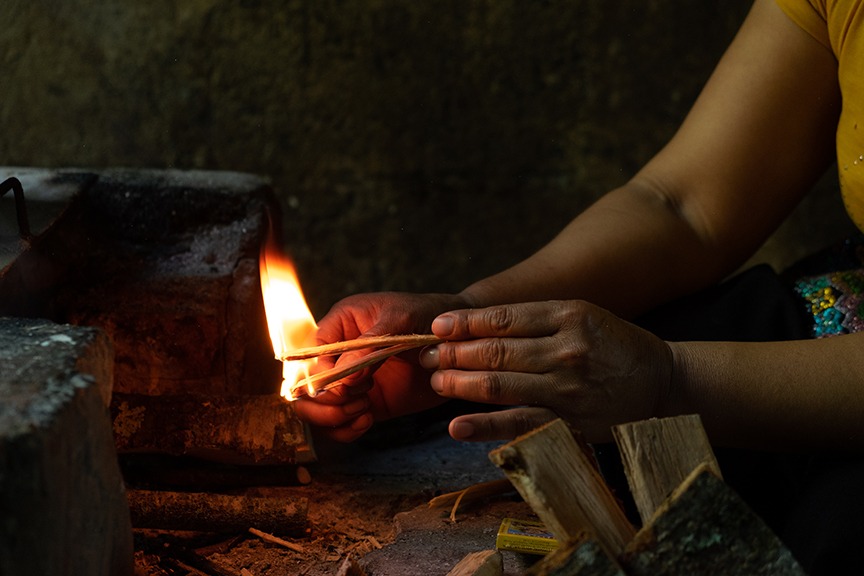

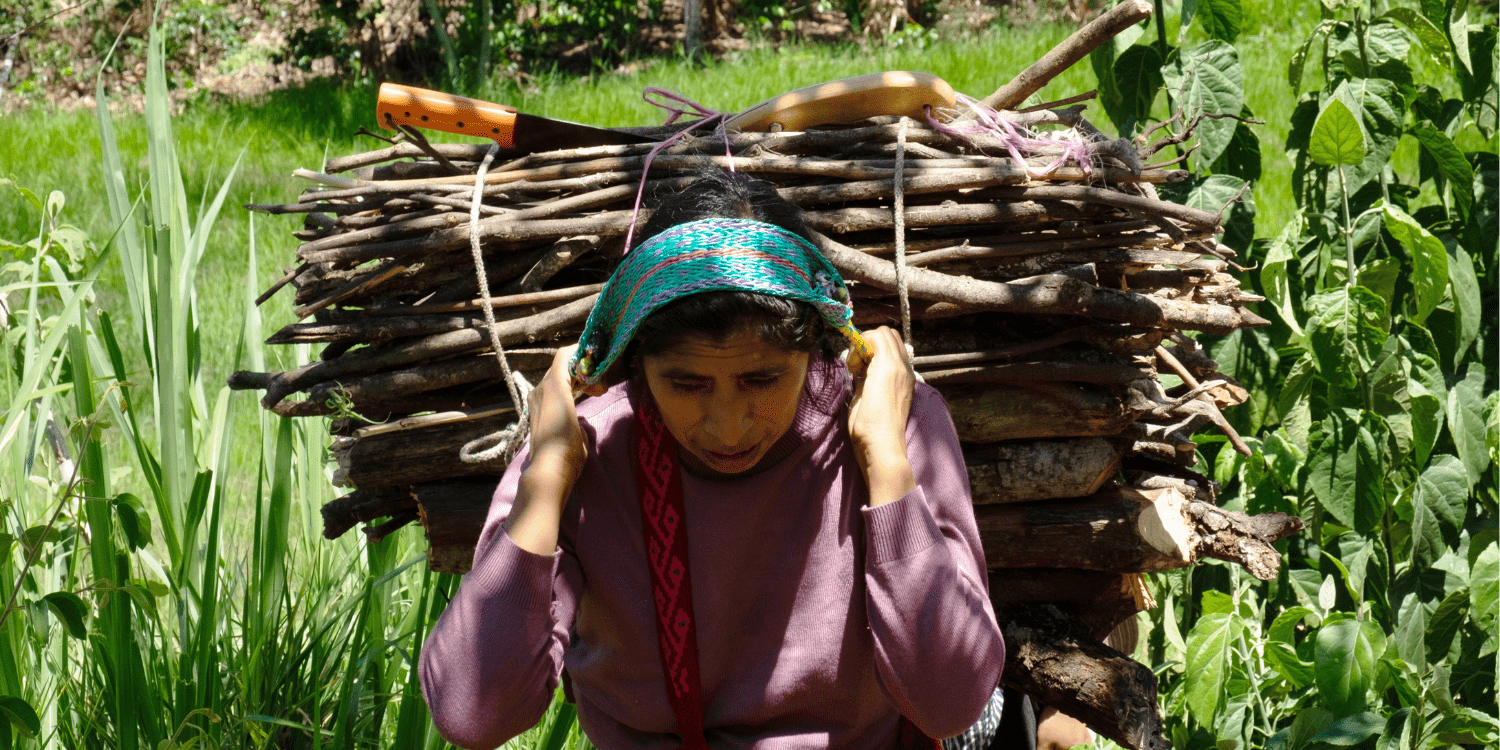




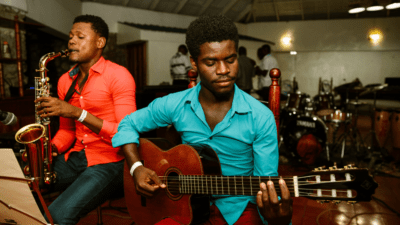

Comments